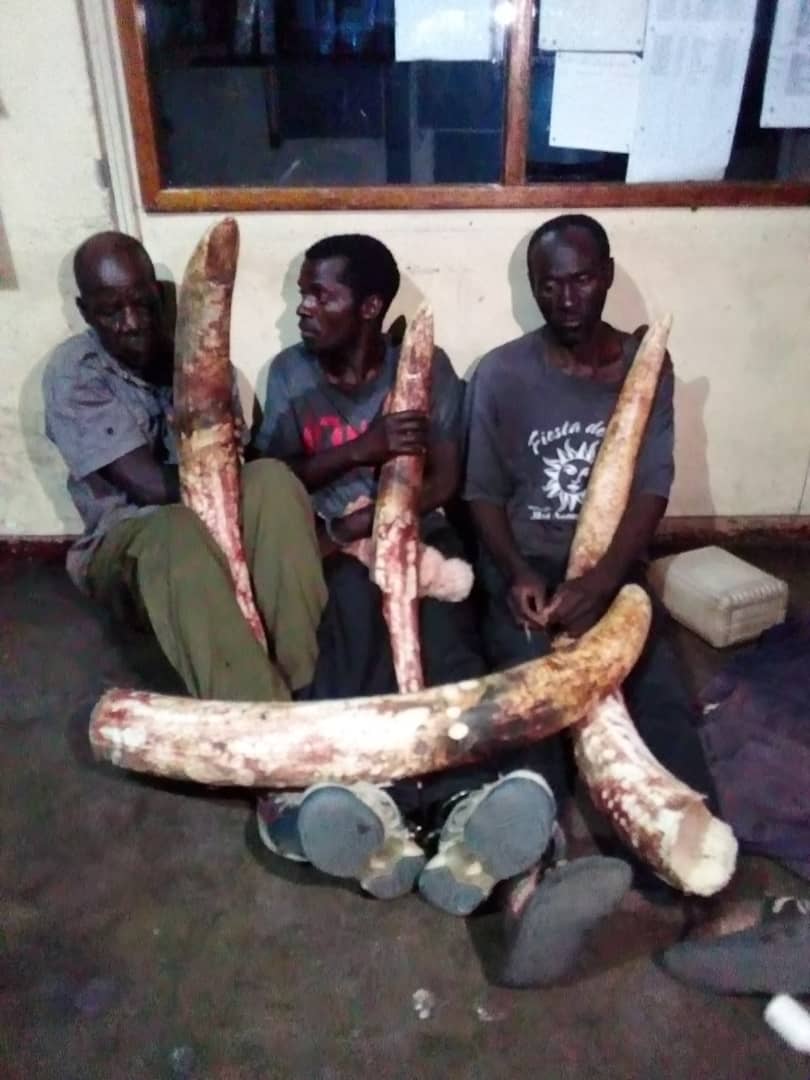Mary Mundeya
As a measure to curb recurrent poaching in areas around the Chizarira Game Park, some ex-wildlife crime convicts have joined hands with the authorities in the fight against the vice.
Measuring about 2 000 square kilometres, Chizarira National Park lies in the northern part of Zimbabwe, and is the fourth-largest in Zimbabwe behind Hwange, Gonarezhou, and Mana Pools.
Chizarira has a huge population elephants, lions, leopards, and buffaloes.
Villages surrounding the game reserve are seeing a resurgence of illegal wildlife hunting involving people from nearby communities like Binga, Gokwe, and Karoi; while others are trans-border criminals from Zambia.
In the years 2019-2021, poaching had significantly declined from a high of 77 in 2019 to 10 in 2021, but the gains began to be reversed since last year.
According to a survey conducted by Fauna and Flora Zimbabwe (FafloZim), many more poachers were arrested in 2022 than the previous year.
Since July 2022, the organization has documented the arrest of 19 people and recovery of 36 elephants’ tusks in Zimbabwe, 69 percent of the tusks were recovered in Gokwe alone in areas surrounding the Chizarira.
“It is very disturbing to note that at least 36 tusks have been recovered within a period of 7 months. 36 elephant tusks translates to 18 or more dead elephants. What is most worrying is the fact that these are not national statistics.
“Despite the required punishment’s apparent deterrent effect, ivory poaching arrest figures are appalling despite knowledge of the minimum 9-year prison sentence,” a report FaFloZim produced after its survey read in part.
FafloZim is an eco-centric community based organization formed by a group of environmental lawyers and other experts whose primary mandate is advocating for environmental rights.
Chapter 20:14 of the Parks and Wildlife Act of Zimbabwe prohibits the removal and sale of any wildlife animals in the country without a license.
Reports indicate that the arrests in Gokwe were done after the police were given a tip-off by some people from the community.
Four poachers were arrested on two different incidents in Gokwe after police received a tip-off that Elias Mjobi (teacher), and Godwin Mkandla (50 years) had 14 tusks of raw ivory, and another duo Ashton Chibi (51) of Plot 57 Mutuvha, Norton and Chenjerai Chirinda (37) residing in Mushawiti village under Chief Nemangwe in Gokwe were also allegedly found in possession of 4 pieces of raw ivory near Galiva Bustop along Gokwe-Chitekete road.
A conservationist specialising in community action projects, Amos Gwema said most of the arrests were made possible by ex-wildlife convicts that are now working with the authorities in wildlife conservation and protection programmes.
“It seems that poaching has resurfaced in communities that have suffered droughts in recent years, and these include Gokwe and Binga. From Gokwe, poachers usually go through Binga where the area is remote and the paths easier to navigate,” said Gwema.
He said some of the ex-wildlife convicts were working with the support of their chiefs and they have been actively making it possible for the authorities to catch the culprits.
Nkosikona Dube* is one of the ex-convict informants helping to fight wildlife crime in the area.
“After my release from prison in 2021, I decided to join hands with the authorities in the fight against wildlife crime and my involvement has led to the arrest of a sizable number of poachers,” he said.
Dube also engages in community education on the importance of wildlife conservation.
“I always tell the young boys that poaching is not something to be proud of, nothing comes out of it. Money is not everything and the money that you get from that raw ivory is very insignificant but the jail term is difficult. I wasted more than three years of my life in jail,” he added.
Albert Munsaka, the village head of Siachilaba village where Dube stays says Nkosikona’s wildlife action programs have brought positive behaviour among villagers.
“Currently, my community now has a better appreciation of wildlife conservation and protection. Therefore, any form of illegal activities in our area is reported to the authorities by the people themselves and this was made possible by one of my people who was once jailed for poaching,” he said.
Munsaka commended his people, especially the ex-convicts for introducing the wildlife community initiatives in their area as they are now working with the police and Zimparks to curb wildlife crime in the area.
A close source in Zimbabwe’s CID Minerals, Flora and Fauna Department corroborated Munsaka’s sentiments, pointing to the recent arrest of Elias Mjobi and Godwin Mkandla, from Mukwariva village.
The two were allegedly found in possession of 14 elephant tusks without a permit following a tip-off from another ex-convict.








